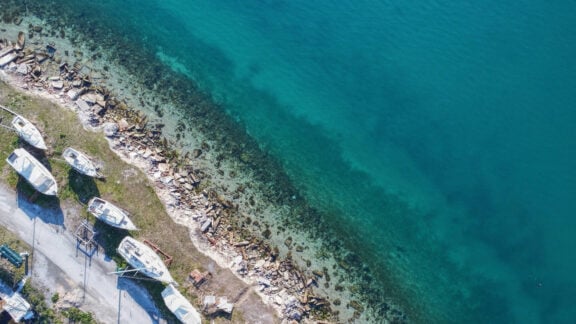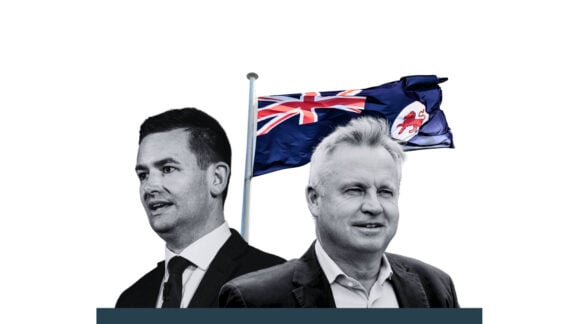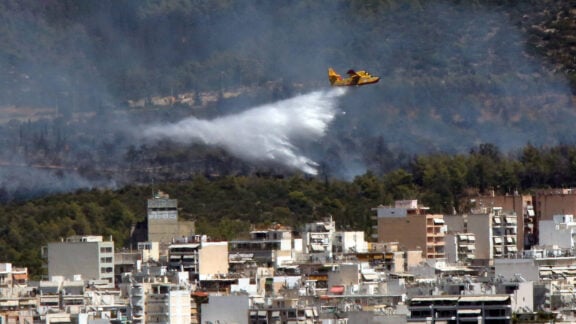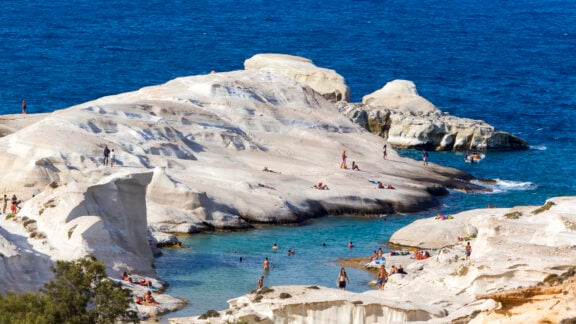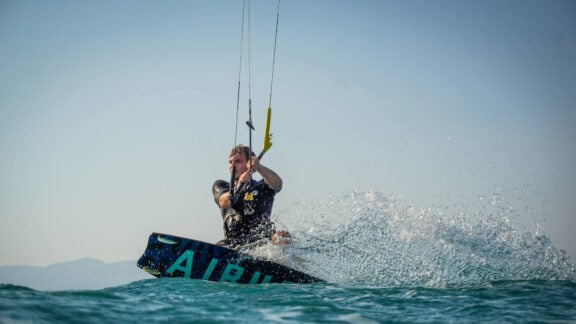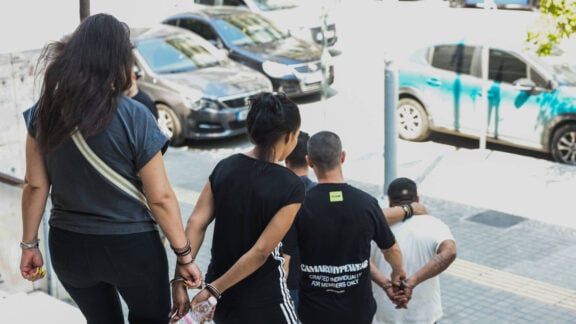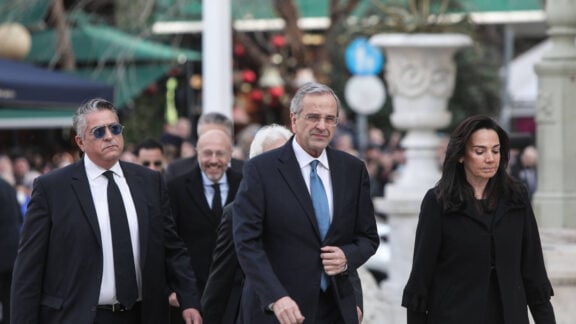Prime Minister Kyriakos Mitsotakis held a meeting at the Greek parliament on Tuesday, expressing his stance in the face of the most recent events between Russia and Ukraine.
Condemning once again the use of force by Russian President Vladimir Putin, he called the act of war a clear violation of the UN Charter and the rules for settling interstate disputes by peaceful means.
“[The Russian president], is questioning the territorial integrity of a country with which Russia has close ties, causing deaths – including those of Greeks in Mariupol – and forcing hundreds of thousands of citizens into migration,” Mr Mitsotakis said.
“This is a violent return to the era of hegemony. In a place where the Holocaust took on very severe dimensions and in a place where Ukrainians and Russians united fought the Nazis,” noting that “Russia’s pretext of supposedly ‘denazifying’ Ukraine is tenuous”.
Highlighting that Greece has always stood on the right side of history, he said this is an irrational and unhistorical invasion, aimed at forcibly changing the security architecture in Europe.
“The Russian threats against Sweden and Finland speak for themselves. The West is called to be re-baptized. When the Russian provocation hit the core of the global geopolitical balance, delays in the West were overcome within days … The effects of Western sanctions are already visible. The Russian economy is being crushed.”
“The Greek stance is a result of our historical experience and global balances,” the prime minister stated.
“We have always been on the right side of history and that is what we are doing now. We are also part of the West and we promote international legitimacy. We live with the issue of Cyprus and we receive threats to our islands. We can not stand by indifferently before authoritarian leaders who want to redesign the borders.”
“There is no room for equal distances here. Either you are with peace and international law, or you are against them.”
Acknowledging the severity of the sanctions and the possible ramifications those might have for the EU and the rest of the world he shared his concerns but also determination to take the collective risk that comes with standing against injustice.
“To those who wonder if the specific sanctions are enough to curb Moscow’s aggression, I answer that it is a huge blow,” Mr Mitsotakis said.
“It is the largest package of sanctions adopted by the EU. In the short term, it shakes Russia’s geopolitical and economic position while mobilising world public opinion, even within Russia. The international blockade can soon trigger an internal reflection.”
“On energy issues, blackmail attempts on the part of Russia cannot be ruled out. Such a prospect will probably cause temporary price spikes. We agreed that this will be the temporary cost. We have ways to react both nationally and at a European level. At a national level, we have already given 2 billion euros in grants, and this policy will continue, especially to the most vulnerable groups, until this crisis is over. The gas companies have already [taken action to ensure] sufficient Liquified Natural Gas (LNG). Such a problem requires a pan-European solution, joint procurement, storage and the subsidising of energy in Europe. Following the Greek proposal, the Commission will discuss the creation of a common fund. Europe has an obligation to focus all its forces on this area. The long-term solution is to quickly become independent of Russian gas. The country’s goal is to quickly become autonomous by utilising wind and solar energy, but also to become a regional and international energy transfer hub to Europe,” Mitsotakis said.
“We will build a second LNG terminal with private funds in Alexandroupolis,” the prime minister underlined.
“I asked for today’s debate so that the national legislature can send a message of unity.”
“Greece must give its own answer. Our brothers have been living in Ukraine for 2,000 years. At the same time, it is our own explicit warning that we will allow no imitator of revisionism to operate in our area. End of story. As for Russia, it must immediately stop the war and put itself among the countries that look to the future. The current crisis can be an opportunity for the EU to take a step forward and align its economic development with its strategic priorities,” he added.
Responding to criticism from the opposition parties over the government’s decision to send defense supplies to Ukraine, the Prime Minister stressed that Greece had more reasons than most to support Ukraine explaining that as a member-state of the European Union Greece is bound to send arms.
“We have additional reasons than, let’s say Portugal, to support Ukraine by sending defense supplies. We will be able to ask for support if we need something similar. A reliable ally who believes in the value of alliances has an obligation to be able to discern and read the geopolitical field and the interests of the country.”
He also denied having cut communication with Turkey, saying he was open to meeting with the Turkish president.
“We come with faith in the power of our arguments and the additional precedent of how important alliances are. We have all realised that revisionism in action can have a huge cost. In Greece’s rich history, there have been more than a few times when decisions of national importance had to be made,” he stated.
“Every time the country has adopted a clear position with its natural allies it has gained. The decision to send military equipment clearly signals where we belong and … and what is right in politics and international relations.”
“I hold on to the agreement of the three largest opposition parties to the condemnation of the Russian invasion, the correctness of the sanctions and I would ask main opposition SYRIZA leader Alexis Tsipras to re-evaluate his position on defense spending. Investing in defense is a necessity and an essential prerequisite for the country to be free and for the prosperity of the Greek people,” Mr Mitsotakis concluded.

